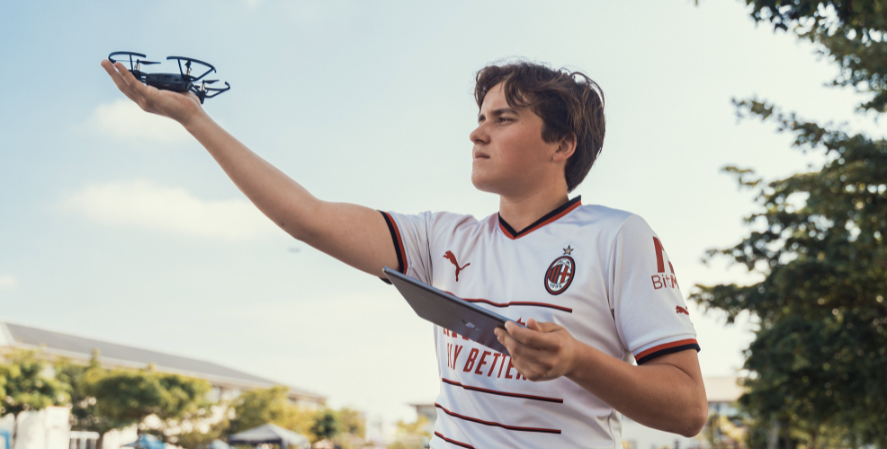We use cookies to improve your online experiences. To learn more and choose your cookies options, please refer to our cookie policy.

If you’re about to start reading this article – spoiler alert – it wasn’t written by ChatGPT.
ChatGPT has made AI feel, well, real. In the blink of an eye awkward AI generated writing has now become more sophisticated and life-like. It’s almost, but not quite, like the real thing.
But, what do we think as educators?
In our view, the ship set sail a long time ago. Debating whether AI is a threat, an opportunity or both – doesn’t help students. It’s here, it’s here to stay and it’ll only get more sophisticated.
All of this means it’s vital – as educators – we continue to help our students get ready to adapt for whatever the future throws at them, whether that’s AGI or the next big thing. To equate AI to ChatGPT misses the point. It’s one of hundreds, if not thousands, of tools.
Framed against all of this, we’re taking a thoughtful and considered approach to how we use AI in our schools, so we help students understand its upsides and downsides. Why? Because AI is clearly a hugely powerful technology with advantages and unintended consequences that our students need to know about.
In our view, it’s our job to help students carefully understand how to use developments in AI to benefit their learning and working lives. And we’re doing this in four ways.
1. Human intelligence and artificial intelligence are powerfully complementary.
It’s no longer an either / or conversation. We’re focused on teaching our students durable human skills that can’t become algorithms.
In our schools, this means developing students’ creativity, teamwork, resilience, and confidence. Irrespective of AI, these are skills our students – and employers – need more of, not less, in order to succeed.
We commissioned independent research looking at how Gen Z’ers from 18 to 25 years old felt their education had helped prepare them for the future. When it comes to being digitally fluent and using new technologies, only 54% of Gen Z’ers said their education had helped this in this area.
Now think about this moment in time, and in the context of AI. It’s why:
2. We’re helping our students ‘get comfortable being uncomfortable’ with AI.
Instead of seeing it as a threat, we’re teaching them how to use AI so the odds are stacked in their favor by honing critical thinking – another durable human skill. To not simply accept AI without question or challenge, to know how it uses information, and to have the confidence to know how and when to use it.
Regarding the advancement and adaptation at Colegio Menor Samborondón to AI processes in education, this year during professional development sessions, our teachers began to explore application options that will improve class procedures, exploring programs such as quiz gecko and curipod which take their interaction processes with GPT4 technologies beyond chat conversations.
Thus, now the management of exam planning, construction of content units, questions and other daily activities of teachers have greater support and depth thanks to the fact that they have participated in this continuous exploration.
This opening as a school has been carried out in a way in which very clear rules have been established for the use of ChatGPT in students from seventh grade onwards, in certain class processes. For example, for the 'Engineering Design' elective, the way of approaching problems and their hardware solutions have been supported by this technology that allows students to be guided in the construction of functional projects such as irrigation systems, support devices for visual disabilities, Morse language conversion systems, among other class projects that the kids have managed to build and program in a very short time, thanks to the fact that we approach a different perspective of learning electronics and programming.
3. We’re working with Professor Rose Luckin, one of the world’s leading authorities on AI in education.
We're working with Professor Rose Luckin to use AI to help our students better understand themselves as learners – how they learn and why, also known as ‘metacognition’.
AI is – in our view – a powerful learning tool. Used properly, it helps students make informed choices about how they use their time to gain deeper knowledge their subjects by using AI to ‘offload’ other tasks that get in the way of learning.
In Professor Luckin’s opinion: “There’s no question in my mind that to flourish in our AI-rich world students need to learn mastery of their own thinking processes as well as a level of mastery of new technologies. This means they need to develop advanced thinking skills such as metacognition. This will not only ensure that they are excellent at learning whatever they need and be able to apply that learning whenever they need it, but also that they can differentiate themselves from AI technologies whose metacognitive abilities are yet to get off the starting blocks.”
4. As teachers we’re developing our own skills – and fast.
As a community of 10,000 Nord Anglia teachers worldwide, we’re learning from each other on how to use Artificial Generative Intelligence – as one example – to support teaching and learning. And we’re sharing these ideas amongst us on Nord Anglia University, our professional learning platform.
We’re also looking externally too, from outside of our organization to continually challenge our own ideas.
Whatever happens next, we’ll make sure our students are ready.
Challenge accepted.